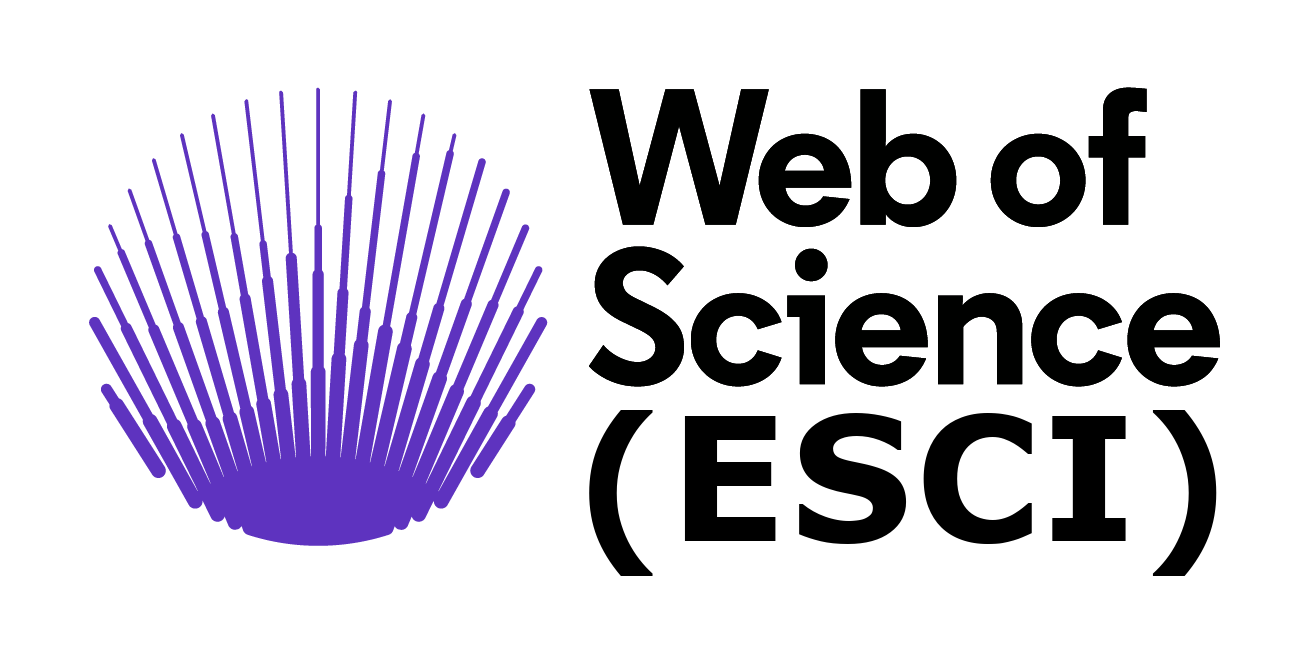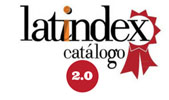Inclusive Education: Mobile Serious Games for People with Cognitive Disabilities
DOI:
https://doi.org/10.29019/enfoqueute.v9n1.236Keywords:
Accessibility assessment, accessibility guidelines, cognitive disabilities, mobile devices, serious games.Abstract
Nowadays, the use of mobile devices is increasingly frequent. In many occasions they are used as a means of entertainment for people through video games. Serious games is a category of video games used as teaching methods in different environments. They use fun as a strategy for the learning process. However, the vast majority do not focus on vulnerable groups such as people with cognitive disabilities, because they do not consider accessibility parameters in their design. Some video games development companies have proposed general guidelines for the implementation of accessible video games, but they have not been formalized as good practices or standards. This article presents a compilation and analysis of different accessibility guidelines for the development of mobile serious games for people with cognitive disabilities. It also proposes a model to evaluate the access of serious games for people with cognitive disabilities and applies it in a case study. Finally, an evaluation tool is proposed for mobile serious games developers focused on people with cognitive disabilities.
Metrics
Downloads
References
Accessible University. (2016). Defining Accessibility - Accessible University. Retrieved January 30, 2018, from http://www.accessibleuniversity.com/accessibility-basics/defining-accessibility
Acosta, T., & Luján-Mora, S. (2017). Análisis de la accesibilidad de los sitios web de las universidades ecuatorianas de excelencia. Enfoque UTE, 8(1), (pp. 46-61). https://doi.org/10.29019/enfoqueute.v8n1.133
Android Developers. (n.d.). Accessibility in Android. Retrieved January 30, 2018, from https://developer.android.com/guide/topics/ui/accessibility/index.html
Apple Developer. (n.d.). Accessibility on iOS. Retrieved January 30, 2018, from https://developer.apple.com/accessibility/ios/
CISCO. (2017). Cisco Visual Networking Index: Global Mobile Data Traffic Forecast Update, 2016–2021 White Paper - Cisco. Retrieved January 30, 2018, from http://www.cisco.com/c/en/us/solutions/collateral/service-provider/visual-networking-index-vni/mobile-white-paper-c11-520862.html
Confederación Española de Organizaciones Empresariales (CEOE). (n.d.). Serious Games CEOE - Aplicaciones de Android en Google Play. Retrieved February 12, 2018, from https://play.google.com/store/apps/details?id=com.prevencontrol.seriousgamesceoe&hl=es
Durango, I., Carrascosa, A., Gallud, J. A., & Penichet, V. M. R. (2015). Using Serious Games to Improve Therapeutic Goals in Children with Special Needs. In Proceedings of the 17th International Conference on Human-Computer Interaction with Mobile Devices and Services Adjunct - MobileHCI’15 (pp. 743–749), New York, USA: ACM Press. https://doi.org/10.1145/2786567.2793696
Game accessibility guidelines. (n.d.). A straightforward reference for inclusive game design. Retrieved February 5, 2018, from http://gameaccessibilityguidelines.com/
GameLearn. (2015). The future of serious games through the lens of mobile devices. Retrieved February 12, 2018, from https://game-learn.com/the-future-of-serious-games-through-the-lens-of-mobile-devices/
Ghannem, A. (2014). Characterization of Serious Games Guided by the Educational Objectives. In Proceedings of the Second International Conference on Technological Ecosystems for Enhancing Multiculturality, (pp. 227–233). https://doi.org/http://dx.doi.org/10.1145/2669711.2669904
Gikas, J., & Grant, M. M. (2013). Mobile computing devices in higher education: Student perspectives on learning with cellphones, smartphones & social media. The Internet and Higher Education, 19, (pp. 18–26). https://doi.org/10.1016/j.iheduc.2013.06.002
Guillén-Nieto, V., & Aleson-Carbonell, M. (2012). Serious games and learning effectiveness: The case of It’s a Deal! Computers & Education, 58(1), (pp. 435–448). https://doi.org/10.1016/j.compedu.2011.07.015
Hatzigiannakoglou, P. (2015). Junk-Food Destroyer: Helping Adolescents with Down Syndrome to Understand Healthy Eating through Serious Game. In 7th International Conference on Games and Virtual Worlds for Serious Applications (VS-Games) (pp. 1–5). IEEE. https://doi.org/10.1109/VS-GAMES.2015.7295778
HCI Lab University of Udine, & Regional Council of the Associations of Disabled Persons FVG. (2017). Help! The Serious Game - Aplicaciones de Android en Google Play. Retrieved February 11, 2018, from https://play.google.com/store/apps/details?id=it.uniud.hcilab.helpseriousgame
Holger, O., Tufiño, R., & Estévez, J. (2017). Hacia la construcción de un dispositivo de asistencia para personas no videntes en el juego de cuarenta. Enfoque UTE, 8(4), (pp. 27-40). https://doi.org/10.29019/enfoqueute.v8n4.170
IGN. (2014). I’m a Disabled Gamer and This is My Story. Retrieved February 9, 2018, from http://www.ign.com/articles/2014/05/30/im-a-disabled-gamer-and-this-is-my-story
International Game Developers Association (IGDA) — Game, & Accessibility SIG. (2004). Accessibility in Games: Motivations and Approaches. Retrieved February 5, 2018, from http://g3ict.org/download/p/fileId_776/productId_50
Jaramillo-Alcázar, A., & Luján-Mora, S. (2017). Mobile Serious Games: An Accessibility Assessment for People with Visual Impairments. In Proceedings of the 5th International Conference on Technological Ecosystems for Enhancing Multiculturality (pp. 1–6). New York, USA: ACM Press. https://doi.org/10.1145/3144826.3145416
Jaramillo-Alcázar, A., & Luján-Mora, S. (2018). An Approach to Mobile Serious Games Accessibility Assessment for People with Hearing Impairments (pp. 552–562). Springer, Cham. https://doi.org/10.1007/978-3-319-73450-7_52
Jaramillo-Alcázar, A., Luján-Mora, S., & Salvador-Ullauri, L. (2017a). A Mobile Serious Games Assessment Tool for People with Motor Impairments. In International Conference on Education Technology and Computers. (pp. 172-177). New York, USA: ACM Press. https://doi.org/10.1145/3175536.3175569
Jaramillo-Alcázar, A., Luján-Mora, S., & Salvador-Ullauri, L. (2017b). Accessibility Assessment of Mobile Serious Games for People with Cognitive Impairments. In International Conference on Information Systems and Computer Science.
Koster, R. (2013). A theory of fun for game design.
Markets and Markets. (n.d.). Serious Game Market worth $5,448.82 Million by 2020. Retrieved February 14, 2018, from http://www.marketsandmarkets.com/PressReleases/serious-game.asp
MediaLT. (2004). Guidelines for the development of entertaining software for people with multiple learning disabilities. Retrieved February 12, 2018, from http://www.medialt.no/rapport/entertainment_guidelines/index.htm
Michael, D., & Chen, S. L. (2006). Serious games: games that educate, train and inform. Thomson Course Technology.
Rello, L., Bayarri, C., Otal, Y., & Pielot, M. (2014). A computer-based method to improve the spelling of children with dyslexia. In Proceedings of the 16th international ACM SIGACCESS conference on Computers & accessibility - ASSETS ’14 (pp. 153–160). New York, USA: ACM Press. https://doi.org/10.1145/2661334.2661373
Sauve, L., Senecal, S., Kaufman, D., Renaud, L., & Leclerc, J. (2011). The Design of Generic Serious Game Shell. In International Conference on Information Technology Based Higher Education and Training (pp. 1–5). IEEE. https://doi.org/10.1109/ITHET.2011.6018675
Superdata. (2016). SuperData Research | Games data and market research » Worldwide digital games market. Retrieved February 12, 2018, from https://www.superdataresearch.com/market-data/market-brief-year-in-review/
The AbleGamers Foundation. (2012). A Practical Guide to Game Accessibility. Retrieved February 12, 2018, from http://includification.com/AbleGamers_Includification.pdf
The Radicati Group. (2014). Mobile Statistics Report, 2014-2018. Retrieved February 12, 2018, from http://www.radicati.com
Tore, P. A. Di, Tore, S. Di, Ludovico, L. A., & Mangione, G. R. (2014). MADRIGALE: A Multimedia Application for Dyslexia and Reading Improvement GAmifying Learning Experience. In International Conference on Intelligent Networking and Collaborative Systems (pp. 486–491). IEEE. https://doi.org/10.1109/INCoS.2014.48
United Nations. (2017). Convention on the Rights of Persons with Disabilities (CRPD). Retrieved January 19, 2018, from https://www.un.org/development/desa/disabilities/convention-on-the-rights-of-persons-with-disabilities.html
US Census Bureau Public Information Office. (2012). Nearly 1 in 5 People Have a Disability in the U.S., Census Bureau Reports - Miscellaneous - Newsroom - U.S. Census Bureau. Retrieved February 12, 2018, from https://www.census.gov/newsroom/releases/archives/miscellaneous/cb12-134.html
Uzuegbunam, N., Wing-Hang Wong, Cheung, S. S., & Ruble, L. (2015). MEBook: Kinect-based self-modeling intervention for children with autism. In IEEE International Conference on Multimedia and Expo (ICME) (pp. 1–6). IEEE. https://doi.org/10.1109/ICME.2015.7177518
WebAIM. (2013). Cognitive Disabilities. Retrieved February 14, 2018, from http://webaim.org/articles/cognitive/
Woofie Games. (2017). Multi Surgery Doctor Hospital - Aplicaciones de Android en Google Play. Retrieved February 11, 2018, from https://play.google.com/store/apps/details?id=com.woofie.multi.surgery
World Health Organization. (2001). International Classification of Functioning, Disability and Health (ICF).
World Health Organization. (2011). World Report on Disability. Retrieved February 11, 2018, from http://www.who.int/disabilities/world_report/2011/report.pdf
Published
How to Cite
Issue
Section
The articles and research published by the UTE University are carried out under the Open Access regime in electronic format. By submitting an article to any of the scientific journals of the UTE University, the author or authors accept these conditions.
The UTE applies the Creative Commons Attribution (CC-BY) license to articles in its scientific journals. Under this open access license, as an author you agree that anyone may reuse your article in whole or in part for any purpose, free of charge, including commercial purposes. Anyone can copy, distribute or reuse the content as long as the author and original source are correctly cited. This facilitates freedom of reuse and also ensures that content can be extracted without barriers for research needs.
This work is licensed under a Creative Commons Attribution 3.0 International (CC BY 3.0).
In addition, the journal Enfoque UTE guarantees and declares that authors always retain all copyrights to the original published works without restrictions [© The Author(s)]. Acknowledgment (BY): Any exploitation of the work is allowed, including a commercial purpose, as well as the creation of derivative works, the distribution of which is also allowed without any restriction.























 Enfoque UTE - Facultad de Ciencias de la Ingeniería e Industrias - Universidad UTE
Enfoque UTE - Facultad de Ciencias de la Ingeniería e Industrias - Universidad UTE